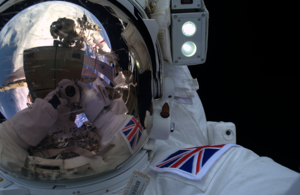The database was expanded in January 2020 to host SARS-CoV-2 genome sequences and to facilitate rapid sharing of sequenced data. It stores sequences submitted by 240 countries and territories from across the world to inform the global pandemic response.
The UK Health Security Agency (UKHSA) is on the front line protecting the nation from infectious diseases and other public health threats. This includes responsibility for developing and expanding pathogen genomic surveillance in partnership with scientific organisations including the Wellcome Sanger Institute, NHS, public health agencies from all 4 countries of the UK, academic institutions and the COVID-19 Genomics UK (COG-UK) consortium.
Genomic sequencing provides a better understanding of how the virus is evolving to help inform the global pandemic response. Significant UK discoveries have been made as a result of genomic sequencing throughout the COVID-19 pandemic. These include identifying the Alpha variant, which helped to explain epidemiological changes in data and transmission, as well as helping to track the emergence and spread of the Delta and Omicron variants as they replaced Alpha in turn.
Professor Susan Hopkins, Chief Medical Advisor to UKHSA, said:
Sequencing 2 million genomes is a fantastic achievement and a testament to the UK’s scientific strength and expertise. We are hugely grateful to everyone who has worked hard and at incredible speed to make this happen.
Global co-operation is key in the fight against COVID-19 and UKHSA is proud to play its part along with public health and academic colleagues from the 4 nations of the UK. The UK’s genomic sequencing technology is world-leading and we are playing a vital role in informing the global response to the pandemic.
Whole Genome Sequencing (WGS) is a method for analysing entire genomes and has been used to identify COVID-19 variants from samples taken from infected people.
The UK started to sequence samples from people who had been infected with SARS-CoV-2 in March 2020. These sequences are then uploaded to the international GISAID database. This allows countries to understand what is happening internationally and to take action to help mitigate transmission across borders, as well as to isolate and respond to new variants.
New variants are the most serious risk to global recovery from the pandemic, particularly those which have characteristics that make them more transmissible, cause more severe illness or are more likely to evade immune responses developed from vaccination or prior infection.
By understanding which variants are emerging and circulating in the UK and around the world, the UK is able to respond early and take steps to help keep people safe.
The UK’s contribution to GISAID makes it the second largest contributing country and represents around a quarter of all global samples sequenced across the world to date.
The UK has sequenced samples from over 10% of all COVID-19 cases, higher than almost all the other major contributors to GISAID, enabling comprehensive surveillance of variants. The UK is also one of the fastest to upload sequences to GISAID – helping researchers around the world respond as fast as possible to new variants.
The UK is working with global partners to fill global sequencing capability gaps, either by helping other countries build their sequencing infrastructure or processing samples in the UK if there is no capability within a country.
By using the UK’s world class scientific abilities, UKHSA plays a major role in protecting people from COVID-19 and future emerging health threats at home and abroad.
Sir Patrick Vallance, Government Chief Scientific Adviser, said:
The UK has world-leading genomic sequencing capabilities which have played a crucial role in our fight against COVID-19 by providing a better understanding of the virus.
Significant discoveries have been made as a result of genomic sequencing in the UK, and the feat of uploading a quarter of all SARS-CoV-2 sequences published globally to date is truly remarkable.
Dr Ewan Harrison of the Wellcome Sanger Institute and COG-UK said:
Over the last 2 years a monumental effort by a broad consortium of UK scientists in academia, public health and the NHS has led to the development of the routine SARS-CoV-2 sequencing service in the UK that has enabled this milestone to be passed.
The importance and utility of whole genome sequencing for tracking and understanding pathogens is now abundantly clear. Exciting opportunities now lie ahead for the development of routine global genomic surveillance of pathogens to improve our understanding and management of infectious diseases and for future pandemic preparedness.
Minister for testing Maggie Throup said:
The UK is a global leader in surveillance and this milestone is a testament to the scientists and academics who are working round the clock to monitor COVID-19.
Sharing data and further developing our surveillance of potential variants is a priority as we learn to live with COVID-19. We’re proudly working closely with partners including the World Health Organization (WHO) to exchange scientific expertise and improve surveillance around the world.


